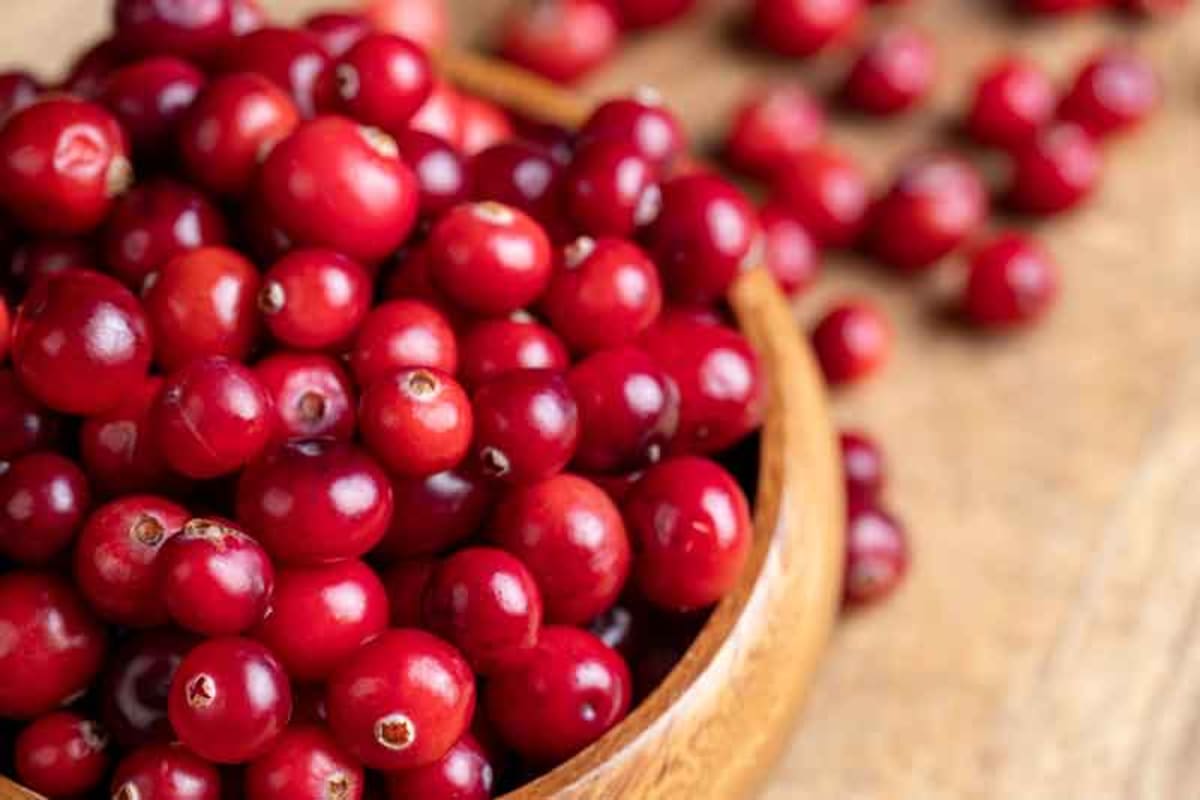
Can dogs eat cranberries?
Can dogs eat cranberries?
Can dogs have cranberries?
Yes, dogs can eat cranberries! These small, tart berries are generally safe for canine consumption when given in moderation. Many dogs may not instantly like cranberries due to their tartness. But if your pup shows interest in these bright red berries, they can be an occasional healthy addition to their diet.
Are cranberries bad for dogs?
Cranberries themselves are not toxic or poisonous to dogs. When fed in appropriate amounts, they can actually provide some health benefits. However, there are a few considerations to keep in mind:
Cranberries are acidic, which may cause stomach upset in some dogs, especially those with sensitive tummies.
The tart flavor of cranberries might not appeal to all dogs.
Frozen cranberries can pose a choking hazard, particularly for smaller dogs.
Dogs with certain health conditions, particularly those prone to calcium oxalate bladder stones, should avoid cranberries as the oxalates in cranberries could potentially contribute to stone formation.
It's also crucial to distinguish cranberries from other similar-looking fruits. Cranberries can sometimes be confused with or mixed with raisins in dried fruit mixes, and raisins are extremely toxic to dogs and can cause kidney failure.
Are cranberries good for dogs?
Cranberries do offer some potential health benefits for dogs. These berries are packed with vitamins C and E, fiber, and antioxidants that support overall health and immune function.
Cranberries also contain compounds that may help prevent certain types of urinary tract infections by making it harder for bacteria to stick to the urinary tract walls. This is why vets sometimes recommend cranberry supplements for dogs with recurrent UTIs.
However, it's important to note that while cranberries might help prevent certain UTIs, they're not a treatment for active infections. If you suspect your dog has a UTI, proper veterinary care is essential.
How to safely feed cranberries to your dog
If you'd like to share cranberries with your dog, follow these guidelines to ensure it's a safe and healthy treat:
Choose fresh, raw cranberries.
Wash them thoroughly to remove any pesticides and contaminants.
Cut them into smaller pieces for small-breed dogs to prevent choking.
Serve them plain without added sugars, sweeteners, or other ingredients.
Never offer cranberry products with xylitol or other artificial sweeteners, which can be toxic to dogs.
Thaw frozen cranberries before serving to prevent damage to your dog's teeth.
Remember, treats of any kind—including cranberries—should make up no more than 10% of your dog's daily caloric intake.
How many cranberries can I feed my dog?
The appropriate serving size depends on your dog's weight and individual health needs. As a general guideline, small dogs (under 20 pounds) should have no more than 1 to 2 cranberries per day. Medium-sized dogs can have 3 to 4, while larger dogs might handle up to 5 to 6 cranberries.
Always start with even smaller amounts when first introducing cranberries to monitor how your dog's digestive system responds. Some dogs may be more sensitive than others, regardless of size.
Moderation is key. Even healthy treats can cause problems when overfed, so cranberries should be an occasional treat rather than a daily addition to your dog's diet.
Can dogs eat dried cranberries?
Yes, dogs can eat dried cranberries, but with some important caveats. Dried cranberries are safe in small amounts as long as they:
Don't contain added sugars
Don't contain artificial sweeteners (especially xylitol, which is toxic to dogs)
Aren't mixed with other dried fruits like raisins (which are toxic to dogs)
Always check ingredients carefully, and when in doubt, stick with fresh cranberries instead.
Can dogs have cranberry juice?
Dogs should not have cranberry juice. Commercial cranberry juices typically contain high amounts of sugar, artificial sweeteners, or other additives that can be harmful to dogs. Some cranberry juices contain xylitol, an artificial sweetener that is extremely toxic to dogs even in small amounts.
Even natural, unsweetened cranberry juice is very acidic and concentrated, which could upset your dog's stomach. If you're considering cranberry for urinary health, consult with your veterinarian about more appropriate options like specific pet-formulated supplements.
Can dogs have cranberry sauce?
Cranberry sauce is typically not a good option for dogs. Most cranberry sauces contain:
High amounts of sugar
Potentially other ingredients like alcohol
Sometimes other fruits like grapes or currants that are toxic to dogs
If you're looking to share holiday flavors with your pup, consider making a dog-friendly version with unsweetened cranberries or seeking out specially formulated dog treats instead.
Can dogs have cranberry pills?
Cranberry supplements formulated specifically for dogs can be appropriate in certain situations, particularly for dogs with recurrent urinary tract infections. However, these should only be given under veterinary guidance.
Human cranberry pills or supplements may contain dosages or additional ingredients not suitable for dogs. The concentration in human supplements could be too strong for your pet's system. If your vet recommends cranberry supplements, be sure to follow their dosage instructions precisely and use products designed specifically for canine consumption.
Other safe fruits
If your dog isn't a fan of cranberries or you're looking for variety, there are several other healthy fruits that are safe for dogs in moderation, including blueberries, strawberries, apple slices (without seeds), watermelon, and bananas.
Remember to introduce any new food gradually and in small increments. Every dog is unique, and what agrees with one pup's digestive system might not work for another.
Always remove pits, seeds, rinds, and cores from fruits before offering them to your dog, as these parts can present choking hazards or contain harmful compounds.
By following these guidelines, you can safely incorporate cranberries and other healthy fruits into your dog's treat rotation, adding variety and nutritional benefits to their diet.